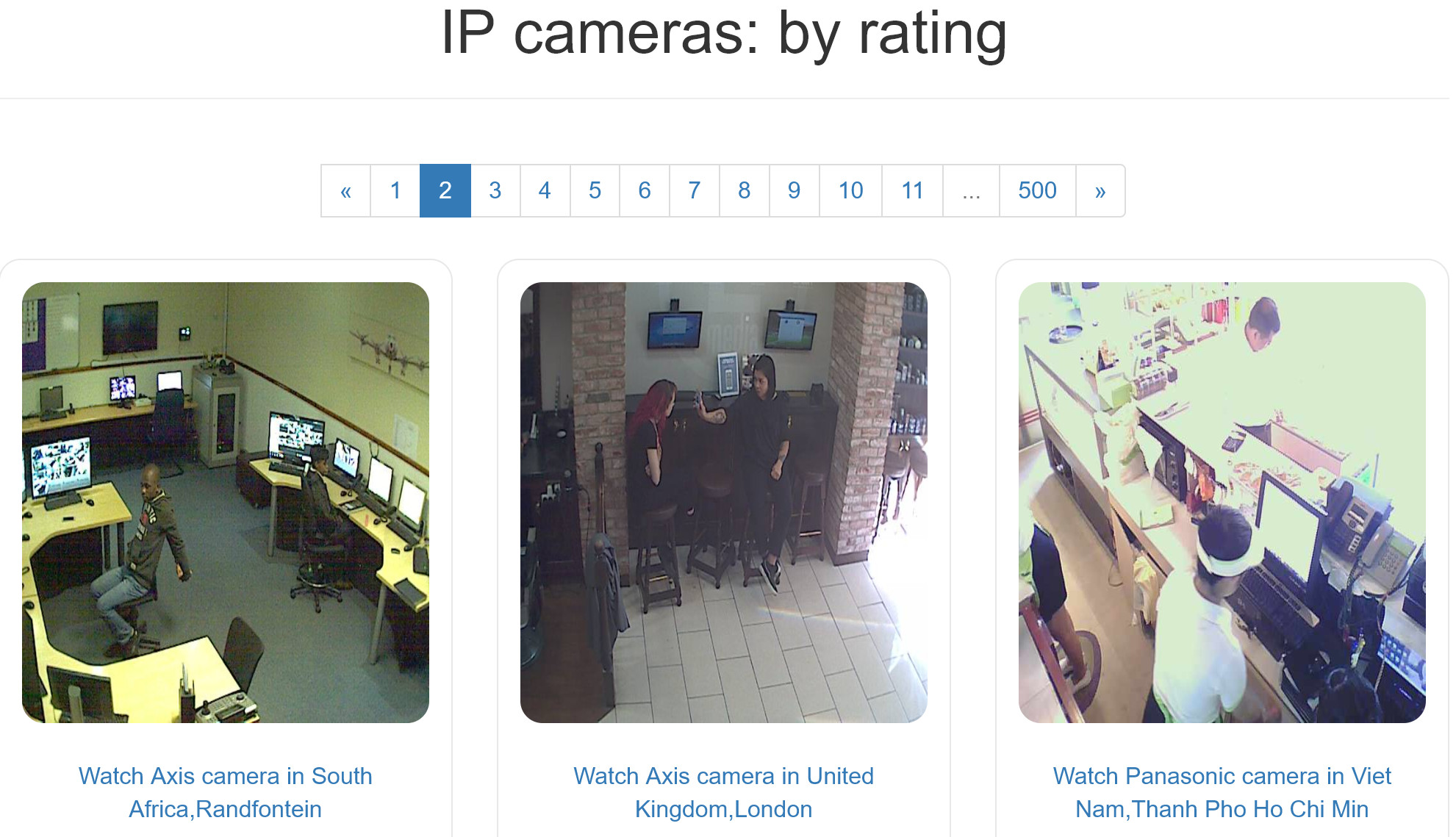Countless IP security cameras are insecure – anyone can watch in. You don’t even need any knowledge about hacking to do so. So who’s to blame? Well, it’s the fault of both careless manufacturers and all-too trusting consumers.
It gives you great peace of mind to know that after you’ve set up your IP security camera, you can now keep an eye on your front yard, garage door or front door 24×7, plus the sight of it will be enough to scare off potential burglars. Ha ha, no chance! Instead of protecting you, many IP security cameras are mutating into a security risk. Anyone can see what’s going on in your home – all really easily over the internet.
Surveillance on the cheap
In Germany, someone gets burgled every three minutes. This is where security cameras play a key role, helping you to monitor your home and nail crooks. Video surveillance is no longer solely of interest to shops and businesses. Whether it’s to protect the front yard, garden, driveway, or vacation home, a growing number of individuals are using this tech to keep an eye on their home and belongings. Security cameras are must-have items. They connect to your home network and live stream their pictures over the internet to your smartphone. And setting them up has long since been something you needed a network pro to do. They used to be really complicated to install; now they practically install themselves. This technology is also no longer expensive. You can get hold of image sensors and housings really cheaply from Asia. You then just need secure network technology – but this is the weak point of many models.
Cutting costs with security
While many manufacturers include loads of functions such as night vision and motion detection with their IP security cameras, many of them don’t even really bother with such critical things as secure streaming and protected access to pictures and online services. Among the issues, the IP cameras use default passwords which you never need to change during setup. Or the passwords are so weak that it’s easy for hackers to sniff them out. It’s also not uncommon for the cameras to reveal their user’s Wi-Fi passwords, email addresses, and FTP access settings – throwing the door wide open to attacks on the user’s personal sphere.
The web service Insecam lists thousands of unprotected webcams, including live streams.

Anyone can be a hacker
If you’re curious, you don’t even need detailed knowledge about hacking. All you need is a browser and the address of an appropriate online service. Take a look at the website insecam.org and you’ll be amazed at how these cameras’ lax security leaves them vulnerable. The service streams content from thousands of unsecured cameras for anyone to enjoy on the internet. You can even search for streams by many criteria, including by country – try searching for yours and you’ll probably find a few hundred. While most of the streams are of businesses, public spaces, or internet cafes, if you root around a bit you’ll also find streams from private webcams offering a view of a kid’s room or the camera owner’s bedroom. Even more controversially, Insecam also reveals the location and the precise coordinates of the security camera – a gold mine for burglars, who can snoop on and work out the movements of the intended target.
Brand-name products no guarantee of security
Another paradise for voyeurs of all persuasions is: Shodan. Unlike Google, which is only interested in the blanket gathering of internet addresses, Shodan gathers information from all kinds of smart devices – with over 500 million online devices listed. There’s now even a special area dedicated to webcams with no or very poor password protection that can be viewed online. If you access them, you can even control the camera and eavesdrop via its microphone. With a little perseverance, you’ll also find streams of sleeping babies, school classes, banks, or swimming pools. It’s highly likely that most camera owners are completely oblivious to all of this. After all, who goes sharing their private life on the internet voluntarily? One very interesting aspect is that Shodan lets you filter cameras by manufacturer, so it quickly becomes clear which camera makes and models are really lacking in the security department. There’s no surprises that the list includes cheap products – but you may be shocked to see big-name brands on there such as Bosch, D-Link, Panasonic, and Sony.
These employees definitely don’t know that anyone can watch them at work online. You can even choose which angle to view them at.

Conclusion
Security cameras have the potential to protect your real estate and other belongings, but this all hinges on them not being the security risk themselves through their own vulnerabilities. To guard against this, in addition to offering secure capture, streaming, and storage, the cameras should also provide cloud services and applications that meet security standards. Sadly, though, it’s something not all manufacturers consider important.
This post is also available in: German













